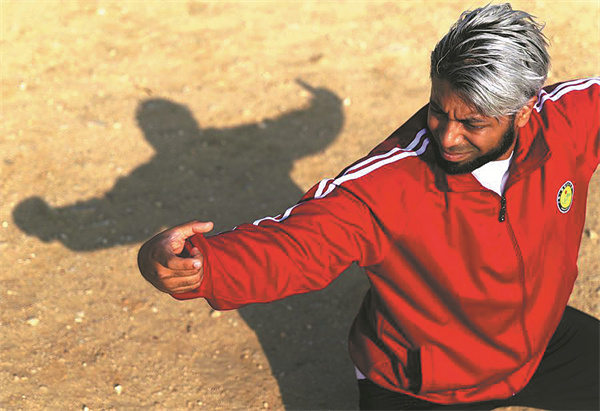US lawyer presents compelling case for Chinese martial arts
Xinhua | Updated: 2025-01-04 10:03

If you think learning kung fu is difficult, meet Mohammad Ullah, an American lawyer who can switch between at least seven forms of Chinese martial arts.
At 30, Ullah is a versatile practitioner of Chinese kung fu, having spent a decade learning various forms of boxing and swordsmanship, and skills using a staff.
He recently returned from the Zhengzhou International Shaolin Wushu Festival held in the province's city of Dengfeng with two medals: a silver medal for guandao swordsmanship and a bronze medal for "eight extremes fist". Wushu is Chinese for martial arts. The festival attracted 2,560 athletes from 56 countries and regions.
Dengfeng in Henan province is renowned for the Shaolin Temple, the birthplace of kung fu. There, Ullah came to grips with two new forms of martial arts — xiaohongquan boxing and drunken fist.
Drunken fist was depicted in Jackie Chan's kung fu movie Drunken Master, but even in China, the boxing form has few practitioners as its unpredictable movements and surprise strikes are difficult to learn.
"Probably the first time I saw the drunken fist was in Jackie Chan's movie. It's hard and probably not the best form to do for competition, but it's very entertaining," says Ullah, who plans to perform for his American friends during the upcoming Chinese New Year.
Growing up in a Houston community with many Chinese and Vietnamese immigrants, Ullah was acquainted with Chinese martial arts through kung fu movies. His training started in his college years when he joined a kung fu club. After learning southern-style boxing, his interest in the kung fu culture drove him to the southern-style sword and staff, as well as the guandao sword and "eight extremes fist".
He visited China for the first time last year to take part in a global Wushu competition at Mount Emei. There, he was amazed by the diversity of kung fu genres and decided to expand his kung fu repertoire.
"I train in such a way (learning more than one style) because it helps me appreciate the vast diversity of Chinese martial arts," Ullah says. "Also, as an athlete, it is important to be well-rounded."
The benefits are not limited to physical health, as Ullah believes the discipline required to improve in kung fu forces one's mind to "undergo a process of filtering out what is unnecessary" and therefore it "trains the mind".
His latest China trip also brought him to the Shaolin Epo Martial Arts School, where he had the unique opportunity to train in the art of drunken fist and deepen his understanding of kung fu's special place in Chinese culture.
"It seems to me that martial arts are not just a hobby or a class for children but part of their daily lives. Everyone in China has respect for martial arts, and it is as important to them as their food, language and history," Ullah says.
Ullah believes the sport has built a bridge for cultural exchanges, as the birthplace of kung fu welcomes more American and other international practitioners.
"Through interactions with people from different backgrounds, we can promote kung fu and foster understanding between nations," he says.
























